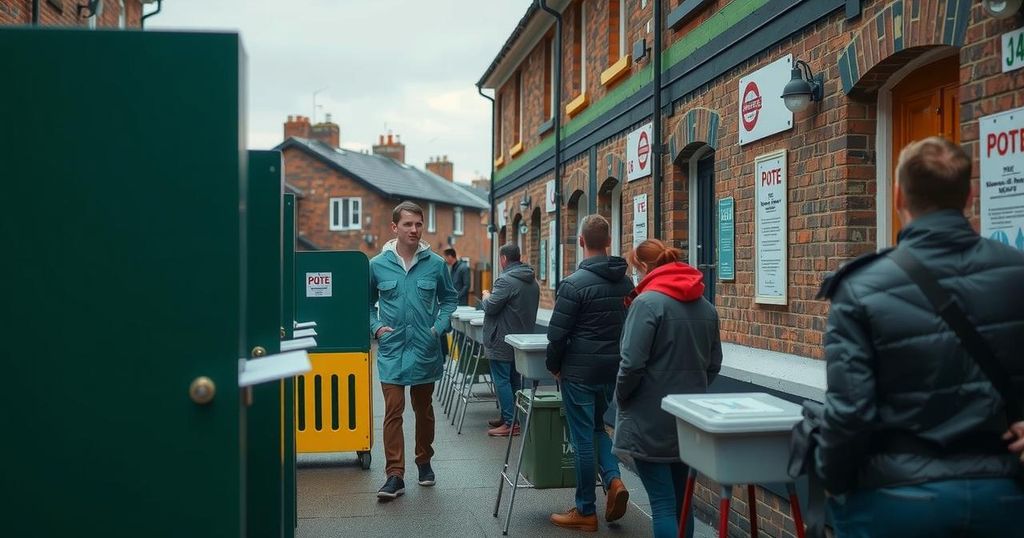Ireland’s Tight Election: Housing Crisis Takes Center Stage
Ireland’s election features a close race between centre-right Fine Gael and Fianna Fail, alongside the opposition Sinn Fein, all attracting around 20 percent support. The campaign focuses heavily on a housing crisis and cost of living issues. With voters casting ballots, the results could reinforce or reshape the current coalition government, strongly influenced by public sentiment toward management of public services.
Ireland is currently experiencing a highly competitive election characterized by a tight race between the incumbent centre-right parties, Fine Gael and Fianna Fail, and the leftist-nationalist Sinn Fein. Polling results indicate that all three parties are within 20 percent support. As voters head to the polls, the election is profoundly influenced by a pressing housing crisis and concerns over the cost of living, significantly impacting public sentiment about government effectiveness.
Combining their forces following a previous inconclusive election in 2020, the historically rival Fine Gael and Fianna Fail have managed to present a united front. Their coalition arose partly from their reluctance to partner with Sinn Fein, which, despite winning the popular vote in the previous election, has faced scrutiny due to its historical connections with the Irish Republican Army. The election was called by Simon Harris, the leader of Fine Gael, who touted significant tax cuts and increased spending against the backdrop of a positive fiscal outlook, with a projected 10.5 billion euros available.
Despite Fine Gael’s earlier lead in polling, their position waned following a viral altercation between Prime Minister Harris and a disgruntled care worker, raising questions about their leadership quality. Sinn Fein, who had enjoyed higher support levels throughout 2022 and early 2023, also saw a decline, attributed to a growing disconnection with voters over their liberal immigration policies.
The major themes of this election remain centered on the soaring costs of living and a severe shortage in housing that continues to push property prices and rents to unprecedented levels. Although Ireland boasts healthy public finances largely due to corporate taxation by multinational corporations, the electorate expresses significant frustration regarding the government’s efficacy in public service management, particularly in housing initiatives during the earlier prosperous years marked by the so-called “Celtic Tiger” era. The counting of ballots will commence Saturday morning across the nation’s 43 constituencies, and it is anticipated that the results may take several days to finalize due to the complexities of the proportional representation count system.
The context of this election in Ireland is shaped by the urgent housing crisis that has become a pivotal issue during the campaign. As property prices and rents reach unsustainable levels, housing policy has emerged as a significant topic of debate among voters. The ongoing coalition between Fine Gael and Fianna Fail marks a historical alliance aimed at countering Sinn Fein’s rise. The public’s discontent with the management of public resources, especially in housing development, has complicated perceptions of the current government. The election also takes place against a backdrop of economic fluctuations and changing public opinion regarding immigration and social policies.
In summary, the ongoing election in Ireland reveals a competitive battle primarily between the centre-right coalitions and Sinn Fein, highlighting significant public concerns over housing, living costs, and government accountability. With early polling suggesting a tight contest, the outcomes will likely shape both the immediate political landscape and address pressing social issues. The unfolding electoral results will be scrutinized for their implications on future governance and policy directions in Ireland.
Original Source: www.aljazeera.com




Post Comment